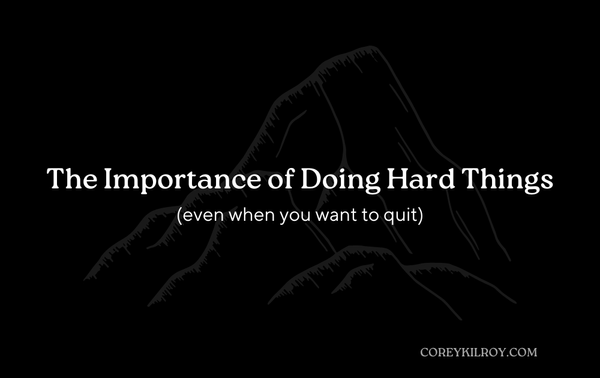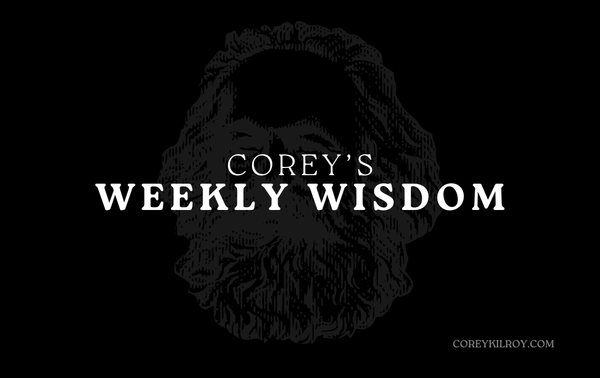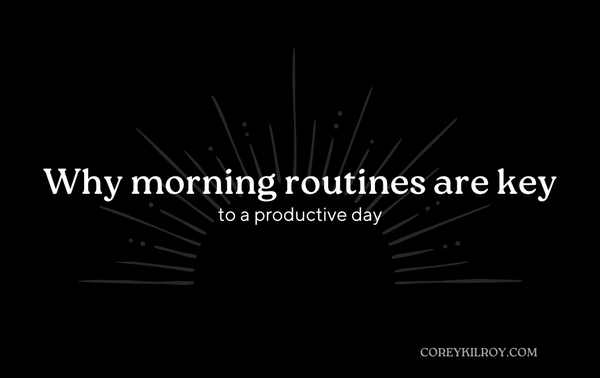Do It Afraid.
Don't let analysis paralysis hold you back.
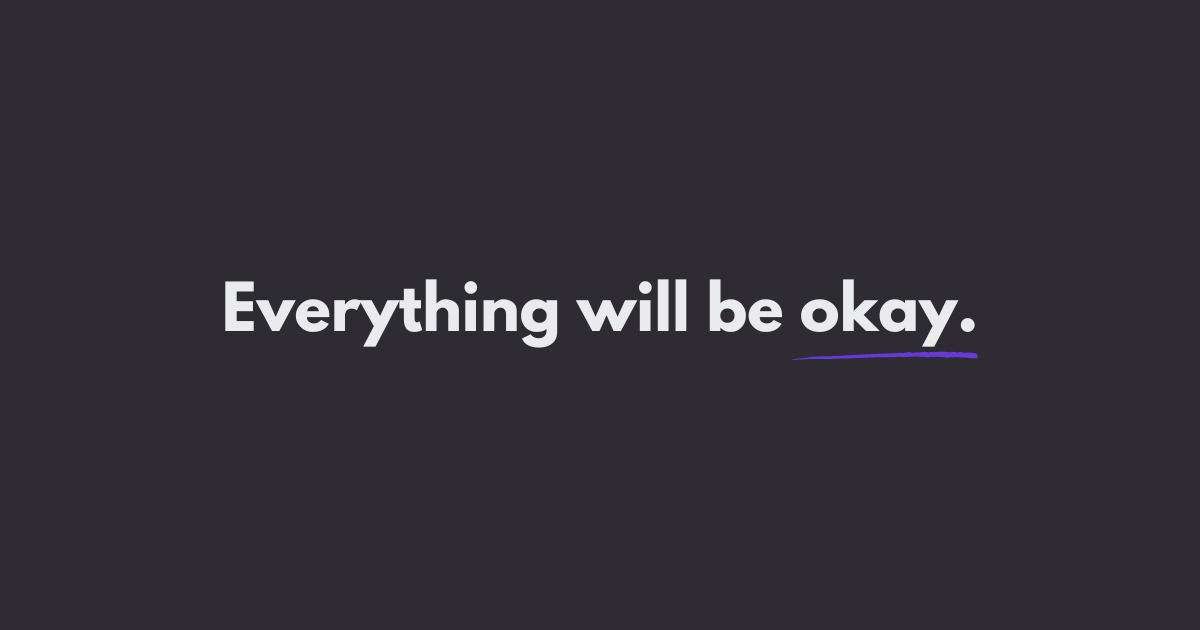
Is fear holding you back?
”Just Google it”
An all too familiar phrase that we tell ourselves on a daily basis.
Now more than ever, we have access to any information we want at the tip of our fingers.
Any decision we need to make, a quick Google search will lead us to the right direction, right?
On the contrary, even though we have access to high-quality information to help us make those difficult decisions, it hasn’t really made decision-making any easier.
We can now research the pros and cons of each and every option available to us.
Great.
But, a simple search query can often open a time-sucking black hole of link clicking that can end hours later with us even more confused than ever.
Conquering self-doubt will ultimately allow you to build your dream life.
— // Corey Kilroy (@kilroyfit) January 30, 2023
Analysis paralysis is your worst enemy.
Take that first step & figure it out as you go.
“Analysis paralysis” is the culprit for this indecisiveness.
Analysis paralysis describes the feeling of being unable to make a decision due to overthinking a problem. This often happens when you're dealing with too many variables and continually researching solutions, instead of taking action and making a decision.
Rather than empowering us to make better choices, our virtually unlimited access to information often leads to greater fear of making the wrong decision.
This, in turn, leads to us circling around in a seemingly inescapable cycle of analysis paralysis, all the while getting nowhere in our decision-making.
Now, let me introduce you to the best friend of analysis paralysis, its good buddy, “The Paradox of Choice”.
Imagine going to the grocery store and you're out to seek after some milk.
You get to the dairy aisle and you’re met with dozens of options.
These days, you’re not only asked to decide between 1% or 2% but what about where your milk is sourced from?
Oat milk, almond milk, soy milk, good ol’ fashion cow milk? There are so many options that you’ll end up overwhelmed.
“The paradox of choice stipulates that while we might believe that being presented with multiple options actually makes it easier to choose one that we are happy with, and thus increases consumer satisfaction, having an abundance of options actually requires more effort to make a decision and can leave us feeling unsatisfied with our choice.”
So Why Should You Care?
This all comes down to taking action, plain and simple.
Delaying action while over-analyzing information clearly doesn’t help when it comes to getting things done.
The anxiety and mental chaos that ensues when unable to make a proper decision is debilitating.
Not only this but your fear of failure is prohibiting you from so much potential.
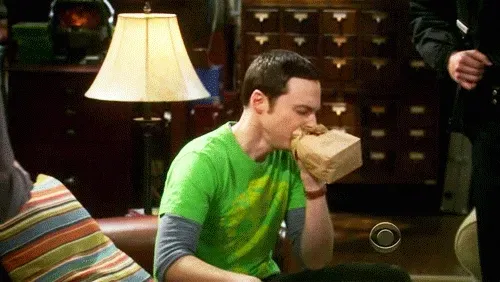
Here are 4 ways Analysis Paralysis is holding you back:
1. Lowers Your Performance on Mentally-Demanding Tasks
Our “working memory” is what we can thank when it comes to high-level tasks, such as learning.
This working memory is a short-term memory system that maintains a limited amount of information with relevance to the task at hand while preventing distractions from irrelevant thoughts and the environment.
If the ability of our working memory to maintain focus is disrupted, then our performance may suffer.
In other words, this working memory allows us to focus on the information necessary to get things done in the present moment.
This working memory, however, is very limited and when it’s overpopulated with unnecessary information, then it’s practically useless.
The stress and anxiety from high-performing situations reduces performance on cognition and mentally demanding tasks — the tasks that rely the most on working memory.
Anxiety and pressure generate distracting thoughts about the situation at hand, taking up part of the working memory’s capacity that would otherwise be used to complete the task.
When you overanalyze the situation, the repetitive thoughts, anxiety, and self-doubt decrease the amount of working memory you have in order to complete those challenging tasks.
Thus, causing your productivity to plummet even further.
2. Kills Creativity
If you’re anything like me, you enjoy consuming knowledgeable content, whether that be reading a book or listening to a podcast.
This type of content is a gold mine for new ideas and concepts, however, this can prove detrimental to productivity if not handled correctly.
Your mind is meant for creating ideas, not storing them.
Consuming too many ideas is amazing if you’re distributing them to a system that stores them (i.e. notebook, notes app, Notion, etc.).
If you’re not storing these ideas somewhere else, then your working memory — as stated above — will fill up and offload old ideas in order to make room for these newly found concepts.
Creativity will plummet if you’re mind is constantly trying to store several ideas at a given time.
The anxiety that comes with overthinking during multitasking will prohibit you from performing creative tasks to their fullest.

3. Eats Away Willpower
Imagine you wish to start a project, perhaps building a new back deck for example.
This is no easy task for the average Joe — including myself — so it will require some time and planning.
You work your way through all of the planning process until you’re met with the simple decision of choosing which wood is right for your new deck.
Redwood? Cedar? You don’t have a clue. A week later and your deck is still incomplete and the type of wood is still undecided.
Why did this decision result in procrastination?
This can be explained by decision fatigue. Each decision we make, from whether we snooze our alarms in the morning to what we’re going to eat for dinner that night, draws on the same limited supply of willpower.
This willpower is just like a muscle — the more you use it, the more it wears out, leaving your overwhelmed and exhausted.
That’s why so many dieters start out their days with a healthy breakfast, but as soon as the day progresses, they succumb to the temptations of fast food and junk.
4. Causes Unhappiness
There’s a term to describe people who consistently seek the optimal outcome for any endeavor — enter the maximizer.
Maximizers tend to be perfectionists. They want to make the best possible decision (for example, say they’re in the market for a new bicycle. Even if they see a bicycle that meets their requirements, they can’t make a decision until they’ve examined every option)
Satisficers, on the other hand, are the opposite. They make a decision once their criteria are met.
Four different studies examined the effects of these two decision-making styles. It was found that:
- Maximizers reported significantly less life satisfaction, happiness, optimism, and self-esteem, and significantly more regret and depression than satisficers.
- Maximizers were more likely to engage in social comparison and counterfactual thinking (i.e. What if I chose option 1 instead?) and experienced more regret and decreased happiness after making a consumer decision.
- Maximizers had a greater increase in negative mood when they didn’t perform as well as their peers.
*These are really hitting close to home here…
Analyzing every option in search of the best choice may lead to a better outcome in theory, but maximizing ultimately leads to more anxiety and regret, along with less happiness and satisfaction with your decisions.
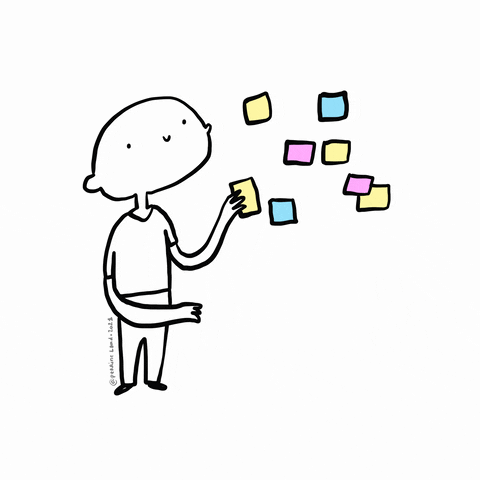
How Can You Solve This?
Repeat after me.
Stop drowning in your thoughts and feelings;
Just do it afraid.
Write that down, put it on your mirror, make it your wallpaper, just put it somewhere to remind yourself every day.
There’s a very enticing poem written by Charles Bukowski that encompasses this concept very well:

Roll the Dice by Charles Bukowski
If you wish to achieve anything in life, take that first step.
No matter how big the feat may be, if you really want it, do it afraid.
The knowledge, expertise, and skill, will all come to you, but only if you take that first step.
And what’s the worst that can happen? You learn something new? I like those odds.
Now here are 4 actionable ways you can overcome analysis paralysis:
1. Differentiate Between Big & Small Decisions
This means just that — differentiate between big and small decisions, then give the decision the level of attention based on its importance.
3 questions to differentiate between big and small decisions:
- How important is this decision?
- What’s the worst thing that could happen?
- Will this impact me a year from now?
If the decision in front of you isn’t going to make a drastic difference a year from now and there are zero serious consequences that will come out of it, then it is a small decision.
Spend as little time as you need to figure this one out.
Then, let go.
On the other hand, if the decision will make a major impact on your life after a year and there are serious consequences along with making the wrong choice (i.e. choosing your life partner), then put that puppy in the big decision category.
After categorizing them in this manner, you’ll soon realize that very few decisions are as important as you think.
Example of a small decision: choosing where to eat for dinner tonight.
Example of a mid-term decision: where to choose your new home.
Example of a big decision: deciding what your life purpose is.
2. Perfection is not the key. “Moderately okay” is.
Unless you are dealing with a life-altering decision like what career path to choose or whether or not to have kids, perfection is not the key.
Your goal is to pick a moderately “okay” choice in a short amount of time, and then move on.
You’ll learn and figure it out as you go.
Just take action.
You perfectionists out there, like myself, maybe shaking your heads vigorously right now, but hear me out.
I’ve learned that every option has its own set of pros and cons.
The perfect choice is almost never available right then and there.
It’s something that you have to hunt down and/or create.
Because of that, picking the perfect choice comes at a very high cost, which means that making the perfect choice is a costly process.
Due to this, the 80/20 rule comes into play here. It takes 20% of the effort to achieve 80% of the gain of a decision.
But to pin down the final 20% to achieve a 100% perfect outcome, you need to invest a huge amount of effort. This effort needs to be justified by the importance of the decision, which is why advice #1 is about categorizing between big and small decisions.
You could either:
- Spend hundreds of hours trying to make the perfect choice. Not to mention, all of us have a finite amount of mental energy to make decisions each day. Meaning realistically, you only have enough brain power to make X good decisions each day, after which other decisions need to be deferred to the next day. OR…
- Spend a minimal amount of time to make a moderately okay decision, then you move on. After, you work on making the best out of your choice and keep pluggin’.
Again, this applies to smaller decisions. If the decision has severe consequences, then take time to make the perfect choice.
3. Let Go of Your Childhood upbringing.
I used to — and still do — face analysis paralysis with purchase decisions.
Making seemingly larger-than-normal purchases take hours of researching, YouTube videos, and contemplating, just to maybe pull the “buy now” trigger.
Why is that, though?
Growing up, I grew up on frugality.
Now yes, my parents did everything in their power to make my sister and I happy with our materialistic desires, but it didn’t come without sacrifices.
And my sister and I knew this. So because of this sacrifice, we knew how valuable the USD ($) was to my family.
I would spend endless time bouncing back and forth between buying item A and item B when there were minuscule differences between the two.
I wanted to make sure every purchase was worth the money being spent on it, otherwise, there would be immense regret.
Even to this day, I’ve developed an extreme sensitivity to buying anything.
Yet another childhood upbringing includes the education system that I was brought up in. There was seemingly zero margin for error — at least for my academic world.
Education was a major factor in my family and every grade felt like life or death (again, at least in my world).
Even if I got a B+ in a class, the situation of, “how can we ask the teacher for extra credit to bump that up to an A?” still arose.
The grind was real.
I — and still do — had very high standards for myself.
Shoot, I even had perfect attendance from grades K-12. So school was a big part of my life. I didn’t want to miss a single piece of information.
I had the notion that school was everything and I had to be perfect in every aspect of it in order to be successful in life.
And in a way, this is very true, but I didn’t need to stress over it every single moment.
Mentally wrapped up in these two stories, I became irrationally fearful of bad choices. Is this the best choice? Is there a better option? What if I don’t like this in the future? What if there are hidden downsides? That would mean that I have made a bad decision!
I was far too often conflicted over purchase decisions, where I would ultimately avoid making any purchase so that I wouldn’t regret it later.
Eventually, I realized that I was living in the shadow of these stories. Every decision has its pros and cons, and it’s ridiculous to think that I’ve made a bad choice just because I don’t like something about it.
Even if you make a bad choice, it’s foolish to beat yourself up over it.
It’s more important to learn and focus on the positive, not the negative.
If you’re constantly dealing with analysis paralysis, then your childhood upbringing could be attributed to this.
Ask yourself: Do you have a childhood story driving your analysis paralysis? Why does it affect you? And how can you work on letting it go?
4. Set a Time Limit
Have you ever heard of Parkinson’s Law?
No not the disease…

Parkinson’s Law is as states: “Work expands so as to fill the time available for its completion.”
Huh?
Well, this basically means that your work will take however long you allow it to take.
If you set 10 minutes aside for a task, it’ll take 10 minutes. If you set aside 1 hour, it’ll take 1 hour. Simple right?
However, if you don’t set a time limit, it may take you forever!
This is the same with decision-making. When you don’t set a time limit for your decisions, each decision can expand and take up your entire thought process as you find new details to analyze.
To solve this, set a time limit. Your time limit should be based on the importance of the decision (yes… see advice #1 again).
Try this:
- Set aside no more than a few minutes for small decisions, and no more than a week for mid-level decisions.
- For big decisions, take as long as you need, though it’s usually common to come to a conclusion in about two months.
If you haven’t made up your mind by then, make the best choice based on the available information. Don’t beat yourself up over it!
Remember that this time limit is based on the importance of the decision. Spending more time than needed means letting the decision take up more time than it is worth. Figure it out and move on to other things.
In the end…
Analysis paralysis can become debilitating when you don’t have the tools or self-awareness to overcome it.
Making decisions is a part of life, no matter how big or small, but they’re never going away.
If you take away one thing from this essay is this… when in doubt, do it afraid.
Nothing significant has come into this world without a little risk.
Do it afraid and figure it out as you go. What’s the worst that can happen?
You say that you tried and gained experience and knowledge from your mistakes?
I say that’s pretty good.
TL;DR
- Analysis paralysis is the feeling of being unable to make a decision due to overthinking a problem.
- Your fear of failure is preventing you from so much potential.
- Do it afraid. Figure it out as you go. The worst that can happen is that you learn.
🙇🏻♂️🌱 Until Next Time, C.

